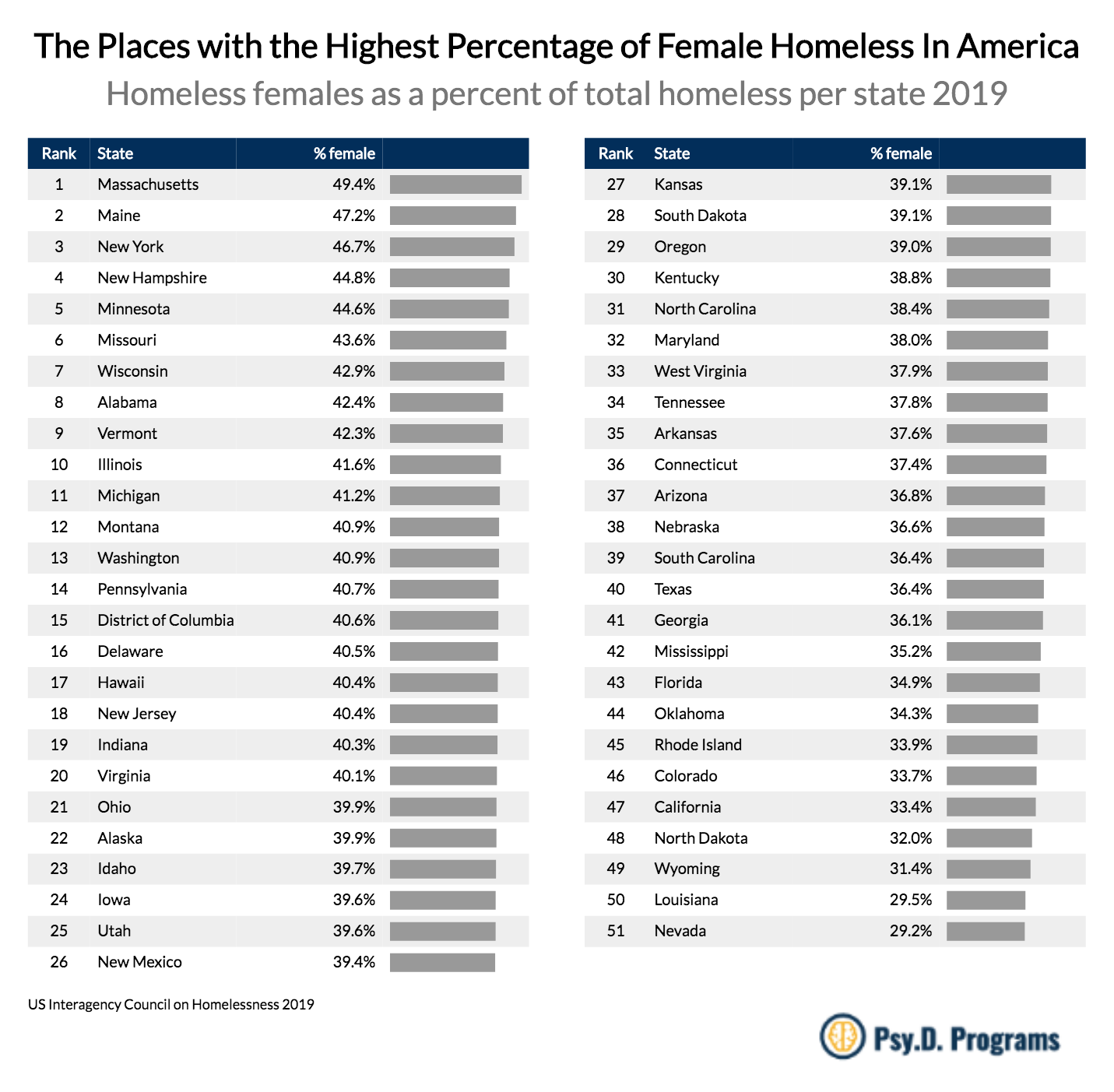
Whats On This Page?
- The Mental Health Crisis and Homelessness
- Psychology Career Opportunities in Homeless Services
- PsyD Programs and Specializations
- State-by-State Analysis for Psychology Professionals
- Clinical Training and Practicum Sites
- Evidence-Based Psychological Interventions
- Salary and Career Outlook
- Frequently Asked Questions
The Mental Health Crisis and Homelessness

The intersection of homelessness and mental health represents one of the most critical challenges facing psychology professionals today. According to the Substance Abuse and Mental Health Services Administration (SAMHSA), approximately 30% of individuals experiencing chronic homelessness have severe mental health conditions, while over 50% have co-occurring substance use disorders. This crisis creates unprecedented demand for skilled psychology professionals trained in community mental health, trauma-informed care, and integrated treatment approaches.
For prospective PsyD students and current psychology professionals, understanding the homelessness crisis is essential for career planning and clinical preparation. The complex psychological factors contributing to homelessness—including untreated mental illness, trauma histories, and substance use disorders—require specialized training and competencies that many APA-accredited PsyD programs now emphasize in their curricula.
The psychological impact of homelessness extends beyond individual mental health, affecting cognitive functioning, emotional regulation, and social relationships. Research published in the American Journal of Community Psychology demonstrates that individuals experiencing homelessness face significantly higher rates of depression (61%), anxiety disorders (53%), and post-traumatic stress disorder (53%) compared to the general population. These statistics underscore the critical need for psychology professionals equipped with specialized training in assessment, intervention, and advocacy.
Psychology Career Opportunities in Homeless Services
The growing recognition of mental health’s role in homelessness has created diverse career pathways for psychology professionals. These positions offer meaningful opportunities to apply clinical skills while addressing critical social issues. Healthcare organizations, government agencies, and nonprofit organizations actively recruit psychology graduates with expertise in community mental health and homelessness interventions.
| Psychology Career Path | Primary Responsibilities | Required Education | Median Annual Salary |
|---|---|---|---|
| Community Psychologist | Program development, needs assessment, community interventions | PsyD or PhD in Psychology | $96,100 |
| Clinical Psychologist (Homeless Services) | Direct therapy, assessment, crisis intervention | PsyD in Clinical Psychology | $96,100 |
| Substance Abuse Counselor | Addiction treatment, group therapy, relapse prevention | Master’s or Doctoral degree | $53,710 |
| Trauma Specialist | Trauma-focused therapy, PTSD treatment, crisis response | PsyD with trauma specialization | $96,100 |
| Program Director | Service coordination, staff supervision, and grant management | PsyD/PhD plus administrative experience | $75,470 |
20 U.S. Bureau of Labor Statistics salary figures are shown here for Psychologists. Job growth projections are from the US Department of Labor-sponsored resource, CareerOneStop. Figures are based on national data, not school-specific information. Conditions in your area may vary. Data accessed August 2024.
PsyD Programs and Specializations
Several accredited PsyD programs offer specialized training in community psychology and interventions for homelessness. These programs integrate coursework in social justice, community mental health, and evidence-based practices for vulnerable populations. Students pursuing these specializations gain unique competencies that prepare them for impactful careers addressing homelessness and related mental health challenges.
Leading programs with community psychology and homelessness-focused training include concentrations in:
- Community Clinical Psychology: Emphasizing prevention, early intervention, and community-based treatment approaches
- Health Psychology: Addressing the complex medical and psychological needs of homeless populations
- Forensic Psychology: Working with justice-involved individuals experiencing homelessness
- Child and Adolescent Psychology: Specializing in youth homelessness and family interventions
- Substance Abuse Psychology: Integrated treatment for co-occurring disorders
Many hybrid PsyD programs now offer field placement opportunities in homeless services, allowing students to gain hands-on experience while completing their doctoral training. These placements provide invaluable exposure to multidisciplinary teams, crisis intervention protocols, and community-based treatment models.
State-by-State Analysis for Psychology Professionals
Understanding regional variations in homelessness rates is crucial for psychology professionals planning their careers and clinical focus. States with higher homelessness rates typically offer more employment opportunities in community mental health settings, specialized treatment programs, and government-funded initiatives.

| State/Territory | Homelessness Rate per 100,000 | Psychology Job Market Outlook | Key Training Opportunities |
|---|---|---|---|
| Washington DC | Highest nationally | Extensive federal and nonprofit opportunities | Multiple APA internship sites |
| New York | Second highest | Large urban mental health systems | Numerous PsyD programs with specializations |
| Hawaii | Third highest | Growing need for culturally competent services | Focus on indigenous populations |
| California | Fourth highest | Extensive state-funded programs | Multiple specialized training sites |
The concentration of homelessness in urban areas creates specific opportunities for psychology professionals. Metropolitan regions with established homeless services typically offer:
- Higher salaries for specialized positions
- Diverse clinical training experiences
- Opportunities for grant-funded research
- Multidisciplinary team collaboration
- Career advancement pathways
Clinical Training and Practicum Sites
Doctoral psychology students seeking expertise in homelessness interventions should prioritize programs offering specialized practicum placements. These training experiences provide essential competencies in crisis intervention, case management, and integrated treatment approaches. Leading training sites include:
Healthcare for the Homeless Programs: Federally Qualified Health Centers (FQHCs) specifically serving homeless populations offer comprehensive training in integrated behavioral health, combining mental health services with primary care.
VA Medical Centers: The Department of Veterans Affairs operates specialized programs for homeless veterans, providing psychology trainees with experience in trauma-informed care and evidence-based treatments for PTSD and substance use disorders.
Community Mental Health Centers: These facilities offer Assertive Community Treatment (ACT) teams and intensive case management services, providing training in community-based intervention models to students.
Shelter-Based Mental Health Services: Direct service provision in emergency shelters and transitional housing programs develops crisis intervention skills and cultural competence.

Evidence-Based Psychological Interventions
Psychology professionals working with homeless populations employ specialized evidence-based interventions tailored to address complex trauma histories, cognitive impairments, and environmental stressors. These approaches require advanced training typically acquired through doctoral psychology programs and specialized continuing education.
Trauma-Informed Care (TIC): This foundational approach recognizes the prevalence of trauma among homeless individuals and emphasizes safety, trustworthiness, and collaboration in all clinical interactions. Psychology professionals implement TIC principles through modified cognitive-behavioral therapy protocols and specialized assessment procedures.
Motivational Interviewing (MI): Particularly effective for individuals with co-occurring substance use disorders, MI helps clients explore ambivalence about change while respecting their autonomy. This approach proves especially valuable in street outreach and drop-in center settings.
Critical Time Intervention (CTI): This time-limited case management model focuses on strengthening individuals’ connections to services and supports during transitions from homelessness to housing. Psychology professionals coordinate with multidisciplinary teams to ensure continuity of mental health care.
Cognitive Behavioral Therapy for Psychosis (CBTp): Given the high prevalence of psychotic disorders among chronically homeless individuals, CBTp offers structured interventions for managing symptoms while living in challenging environments.

Salary and Career Outlook
Psychology professionals specializing in homelessness services can expect competitive salaries, particularly in regions with high demand for mental health services. According to the Bureau of Labor Statistics, clinical and counseling psychologists working in government settings, which often include homeless services, earn median annual salaries ranging from $84,940 to $96,100, depending on specialization and location.
| Career Stage | Position Type | Salary Range | Growth Outlook |
|---|---|---|---|
| Entry-Level (Post-Doctoral) | Staff Psychologist | $75,000 – $85,000 | 6% growth through 2032 |
| Mid-Career (5-10 years) | Senior Psychologist/Supervisor | $85,000 – $105,000 | Strong demand in urban areas |
| Advanced (10+ years) | Program Director/Consultant | $95,000 – $125,000 | Leadership positions increasing |
May 20, U.S. Bureau of Labor Statistics salary for Psychologists and all other psychologists. National labor market information and state labor market information are also sourced from the U.S. Department of Labor, providing information based on national data, rather than school-specific information. Conditions in your area may vary. Data accessed August 2024.

The demand for psychology professionals with expertise in homelessness continues to grow as communities recognize the importance of addressing mental health in comprehensive homelessness interventions. Federal initiatives, including the Substance Abuse and Mental Health Services Administration’s PATH program and HUD’s Continuum of Care funding, create stable employment opportunities for qualified professionals.

Frequently Asked Questions
What psychology specializations are most relevant for working with homeless populations?
The most relevant specializations include community psychology, clinical psychology with a focus on severe mental illness, substance abuse psychology, and trauma psychology. Many professionals also benefit from training in health psychology to address the complex medical needs of this population. Accelerated PsyD programs are increasingly offering concentrations that combine these specializations.
Do I need a doctoral degree to work in homeless services as a professional in psychology?
While a doctoral degree (PsyD or PhD) provides the most comprehensive training and the most extensive career opportunities, master’s-level positions are available in areas such as case management, counseling, and program coordination. However, licensed psychologist positions that require independent practice and supervision responsibilities typically need a doctoral degree from an APA-accredited program.
What are the unique challenges of providing psychological services to homeless individuals?
Key challenges include establishing therapeutic relationships despite trust issues, adapting interventions for cognitive impairments, managing crises in non-traditional settings, coordinating with multiple service systems, and addressing practical barriers to treatment engagement. Specialized training through practicum placements prepares students for these challenges.
How can PsyD students gain experience working with homeless populations during their training?
Students should seek practicum placements at community mental health centers, FQHCs, VA medical centers, or specialized homeless services agencies. Many combined master’s and PsyD programs offer early clinical experiences in community settings. Additionally, volunteer opportunities and research assistantships focusing on homelessness provide valuable exposure.
What is the job outlook for psychologists specializing in homelessness services?
The job outlook is strong, with the Bureau of Labor Statistics projecting 6% growth for psychologist positions through 2032. Demand is particularly high in urban areas with significant homeless populations. Federal funding for mental health services and growing recognition of trauma-informed care create expanding opportunities for specialized professionals.
About PsyDPrograms.org
PsydPrograms.org is the largest online psychology graduate community for students seeking PsyD degree programs, helping thousands of mental health career professional visitors each month. Over the past 10 years that we have been online, we have helped tens of thousands of readers make more informed decisions involving graduate psychology PsyD degree & career decisions.
Originally published March 2, 2020. Last updated December 12, 2024.







